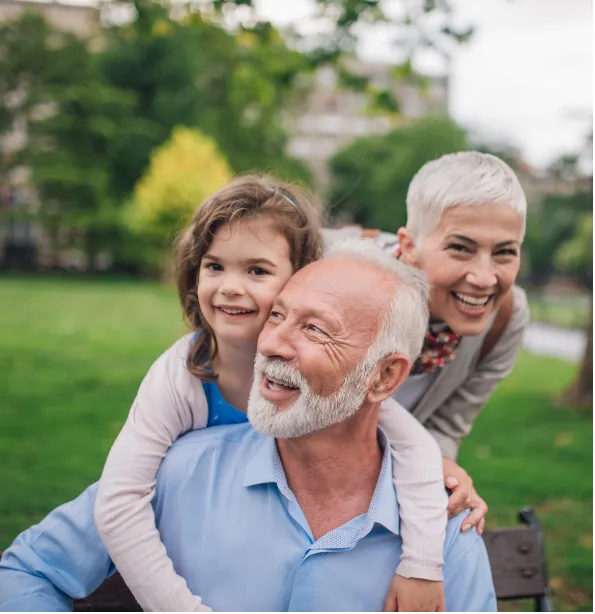
The Health Solutions You've Deserved All Along.
At Hundred Percent Health we bring you natural health solutions to common health problems.
WELCOME
Naturally Effective Health Solutions

HEALING
Experience the Power of Integrative Healing Medicine
Life comes with health challenges.
Yet the solutions don't come from lab, they come from the natural world around us.
At Hundred Percent Health we help those of you who prefer an all-natural approach to better health.

WE SPECIALIZE IN
Natural Treatments For High Blood Pressure And Related Conditions

Natural Herbs
Through the scientific research, we've discovered a range of herbs that lower blood pressure more than some common blood pressure medications.
The Power Of Food
The right food can take you back to good health, but what happens when you fine-tune your diet even further?
Anti-aging, cognitive enhancement and rapid injury recovery. These are some of the outcomes awaiting you.

Lifestyle Shifts
Reclaiming your health doesn't have to mean changing your entire lifestyle.
Life gets busy, so we help you navigate back to good health with as few restrictive lifestyle changes as possible.
Alternative Approaches
Alternative treatments have promising potential to help people with common health issues.
One example is sauna use -- which is shown to lower all-cause mortality risk by over 40%.
There are many more; all detailed within our health guides.
SPECIALISTS
Meet Our Experts


Adam James
Health Researcher and Founder, Hundred Percent Health
Blogs & Articles

The Island With The Lowest Rate Of Heart Disease In The World
What if I told you there’s an island where heart disease — one of the biggest health problems in the modern world — is practically unheard of? A place where people live longer, healthier lives and rarely suffer from the cardiovascular issues that plague much of the world?
That island is Okinawa, a small island in Japan, often referred to as the “Land of Immortals” because of its inhabitants’ remarkable longevity and their extraordinarily low rate of heart disease.

In this article, we’re going to explore what makes Okinawa so special, and more importantly, what we can learn from the islanders to help improve our own heart health.
Why Does Okinawa Have Such Low Rates of Heart Disease?
Okinawa boasts the lowest rate of heart disease in the world, and researchers have been studying the island’s people for decades to understand why. What they’ve found is a fascinating combination of factors — from diet to lifestyle to community values — that all play a role in their exceptional cardiovascular health.
Let’s dive into the key reasons why Okinawans are so resistant to heart disease.
1. A Diet Rich in Vegetables and Natural Compounds
One of the most significant factors is the Okinawan diet, which is heavily plant-based and rich in heart-healthy nutrients. Okinawans traditionally consume a large variety of vegetables, whole grains, and legumes, with limited amounts of meat, dairy, and processed foods.
Key components of their diet include:
Sweet Potatoes: A staple in the Okinawan diet, sweet potatoes are loaded with fibre, antioxidants, and potassium, all of which contribute to healthy blood pressure and cholesterol levels. Unlike many Western diets that rely heavily on white rice, the Okinawans historically used sweet potatoes as their main carbohydrate, which has been linked to their lower incidence of heart disease.
Soy-Based Foods: Okinawans eat plenty of tofu and miso, which contain compounds like isoflavones that have been shown to improve heart health by reducing cholesterol and supporting vascular function.

Seaweed: Seaweed is another common food in Okinawa, providing essential minerals like iodine, magnesium, and calcium that help regulate blood pressure.
Green Tea: Daily consumption of green tea, rich in catechins, contributes to improved blood vessel function and has been linked to reduced risks of heart disease.
2. Low Calorie Intake with High Nutrient Density
Another reason Okinawans have such low rates of heart disease is due to their approach to eating. They practice something called “Hara Hachi Bu,” which means eating until they are only 80% full. This mindful approach helps them consume fewer calories without feeling deprived and promotes healthy body weight and metabolic function.
This lower calorie intake combined with a nutrient-dense diet means that Okinawans get all the vitamins, minerals, and antioxidants they need without the excess calories that can lead to weight gain and heart problems.
Research has shown that caloric restriction can improve longevity, reduce inflammation, and lower the risk of diseases such as high blood pressure, high cholesterol, and diabetes — all of which are major contributors to heart disease.
3. A Strong Sense of Community and Purpose
Okinawan culture is deeply rooted in social connections, and this has a profound effect on their health. Islanders belong to close-knit social groups known as “moai,” which offer lifelong emotional, financial, and communal support. This strong sense of belonging and support can significantly reduce stress — a major factor in heart disease.
Furthermore, Okinawans have a strong sense of “ikigai”, or life purpose. Whether it’s caring for family, maintaining a garden, or contributing to the community, having a sense of purpose in life helps protect against the negative effects of chronic stress.

Research has shown that feelings of isolation and lack of purpose are linked to increased risks of cardiovascular disease. In contrast, the Okinawan way of life promotes emotional wellbeing, social connection, and reduced stress, all of which protect the heart.
4. Physical Activity in Daily Life
While Okinawans don’t necessarily engage in strenuous exercise routines, their daily lives are filled with natural movement. They walk, tend to their gardens, practice Tai Chi, and stay physically active throughout the day.

This kind of moderate, consistent physical activity helps maintain healthy blood pressure, improve circulation, and keep the heart strong.
Unlike many parts of the world where a sedentary lifestyle is the norm, Okinawans make movement a natural part of their routine, which contributes significantly to their cardiovascular health.
5. High Levels of Nitric Oxide
Interestingly, the Okinawan diet and lifestyle are also associated with higher levels of nitric oxide, a compound that helps relax blood vessels and improve circulation, directly impacting blood pressure.
Nitric oxide can be boosted by eating nitrate-rich vegetables like sweet potatoes and seaweed, both of which are staples in the Okinawan diet. Additionally, the stress-reducing aspects of their lifestyle — such as community support and a sense of purpose — help maintain a balanced nervous system, which also contributes to healthy nitric oxide levels and improved blood flow.
Lessons From Okinawa: How You Can Apply This to Your Life
So, what can we learn from Okinawans to improve our own heart health? Here are a few takeaways:
Eat more plants: Incorporate a variety of vegetables, legumes, and seaweed into your diet, and consider limiting processed foods and refined sugars.
Practice mindful eating: Try eating until you’re 80% full, just like the Okinawans do, to help control calorie intake while still nourishing your body.
Stay connected: Build and maintain strong social connections and find a sense of purpose in your daily life. Whether it’s through family, friends, or community activities, staying socially engaged can reduce stress and protect your heart.
Move more: Integrate natural movement into your day. This could be walking, gardening, or practising a gentle form of exercise like Tai Chi or yoga.
Manage stress: Cultivate a sense of calm by focusing on relaxation techniques and maintaining a positive outlook.
Conclusion
The people of Okinawa have mastered the art of living long, healthy lives with an extraordinarily low rate of heart disease. By adopting some of their key habits — such as eating nutrient-rich foods, staying active, and maintaining strong social connections — we can take meaningful steps towards improving our heart health and reducing the risk of cardiovascular disease.
Okinawa offers us a model of what’s possible when we prioritise both our physical and emotional wellbeing. With a few simple lifestyle changes, we too can enjoy the benefits of a healthier heart and a longer life.
TESTIMONIALS
What Our Clients Say About Us

Lorem ipsum dolor sit amet, consectetur adipiscing elit. Vivamus eget semper sem. Quisque sed convallis quam. Nulla lacinia massa non orci mollis lacinia. Aenean sodales blandit elit et ultrices.

John Doe
Yoga Instructor
"Lorem ipsum dolor sit amet, consectetur adipiscing elit. Vivamus eget semper sem. Quisque sed convallis quam. Nulla lacinia massa non orci mollis lacinia. Aenean sodales blandit elit et ultrices."

Jane Doe
Yogi, Wellness Coach
Lorem ipsum dolor sit amet, consectetur adipiscing elit. Vivamus eget semper sem. Quisque sed convallis quam. Nulla lacinia massa non orci mollis lacinia. Aenean sodales blandit elit et ultrices.

jane Doe
Writer, Artist
Frequently Asked Questions

Your Title Here
Lorem ipsum dolor sit amet, consectetur adipisicing elit. Autem dolore, alias, numquam enim ab voluptate id quam harum ducimus cupiditate similique quisquam et deserunt, recusandae.

Your Title Here
Lorem ipsum dolor sit amet, consectetur adipisicing elit. Autem dolore, alias, numquam enim ab voluptate id quam harum ducimus cupiditate similique quisquam et deserunt, recusandae.

Your Title Here
Lorem ipsum dolor sit amet, consectetur adipisicing elit. Autem dolore, alias, numquam enim ab voluptate id quam harum ducimus cupiditate similique quisquam et deserunt, recusandae.


